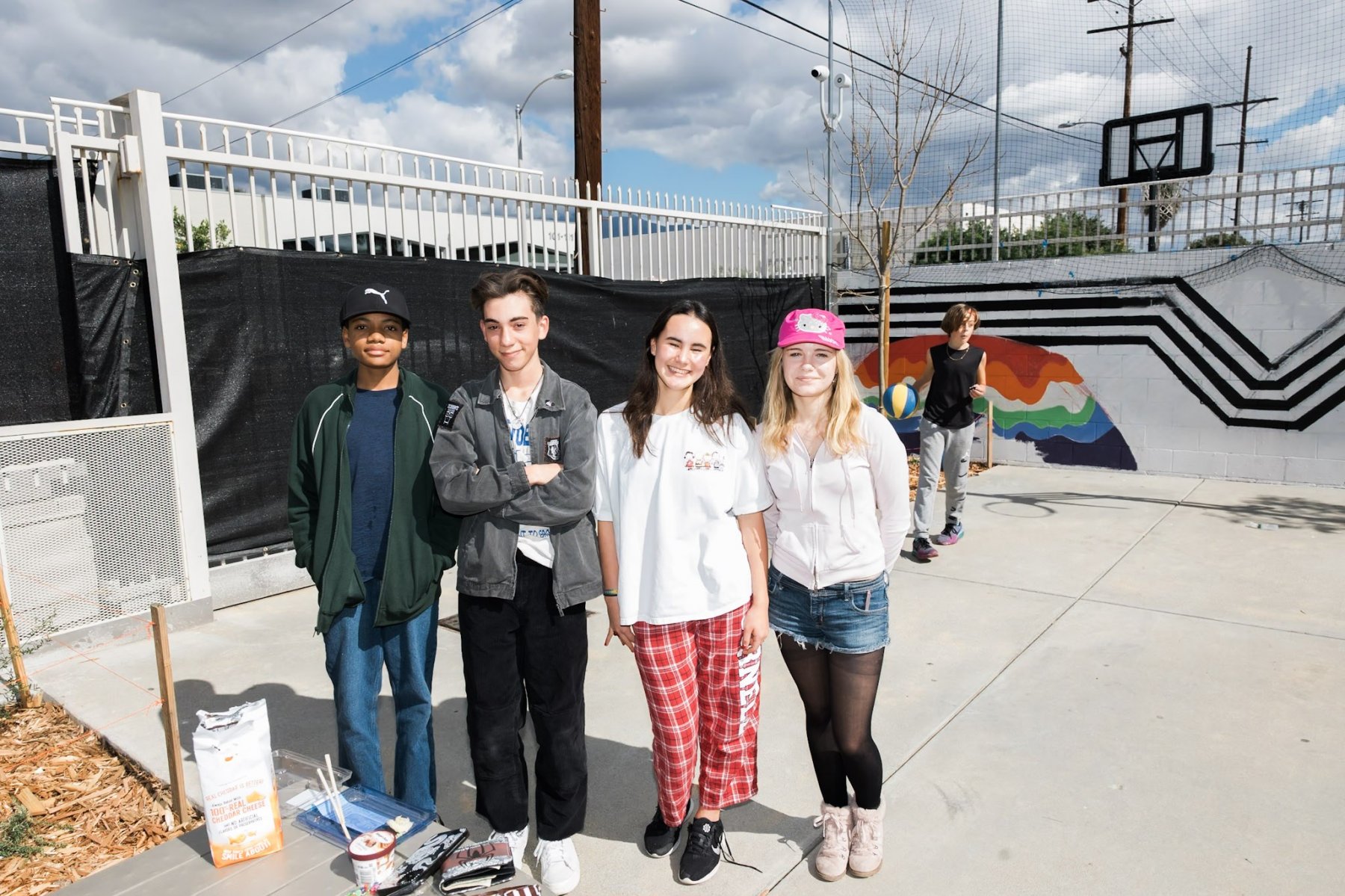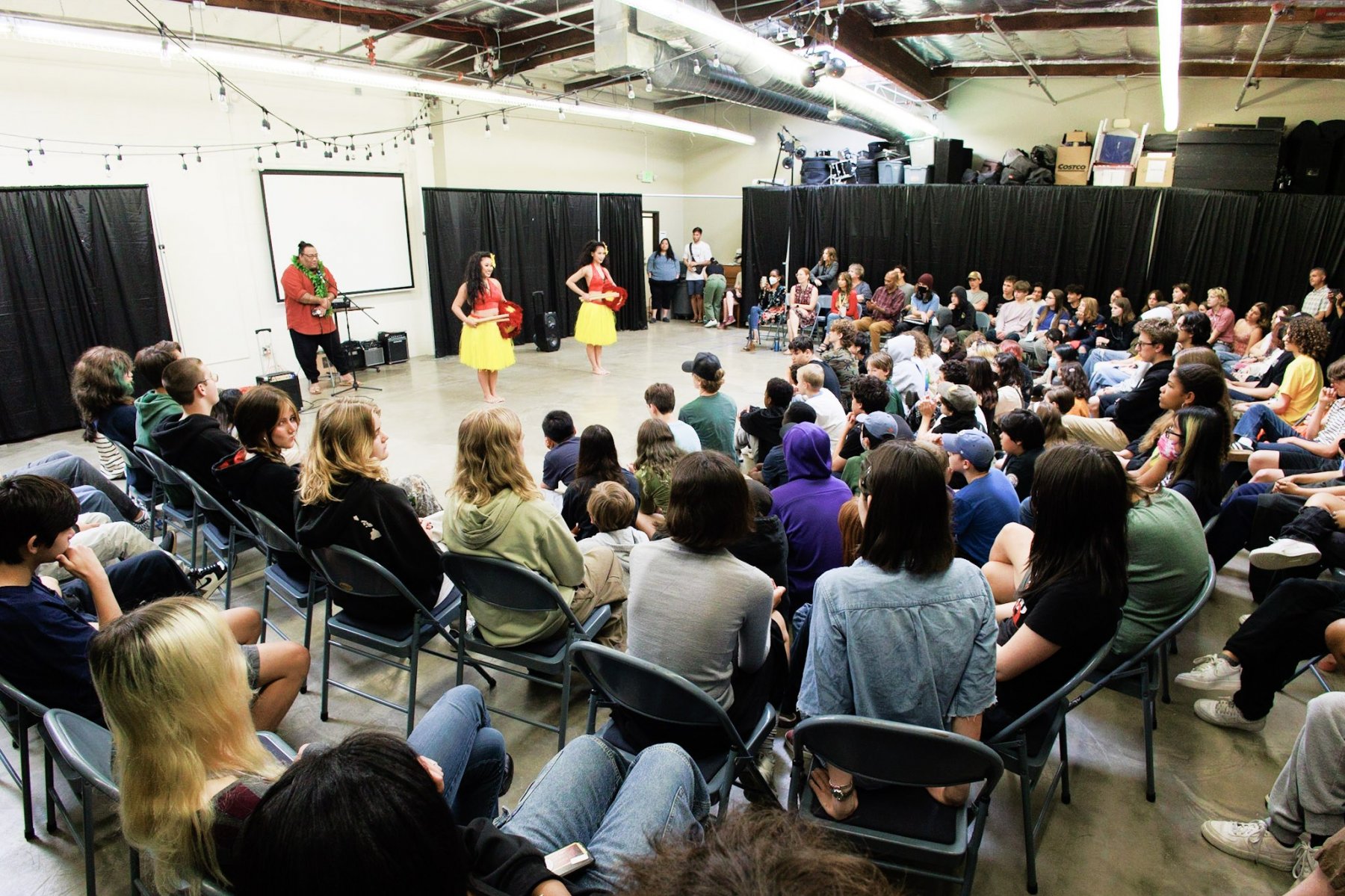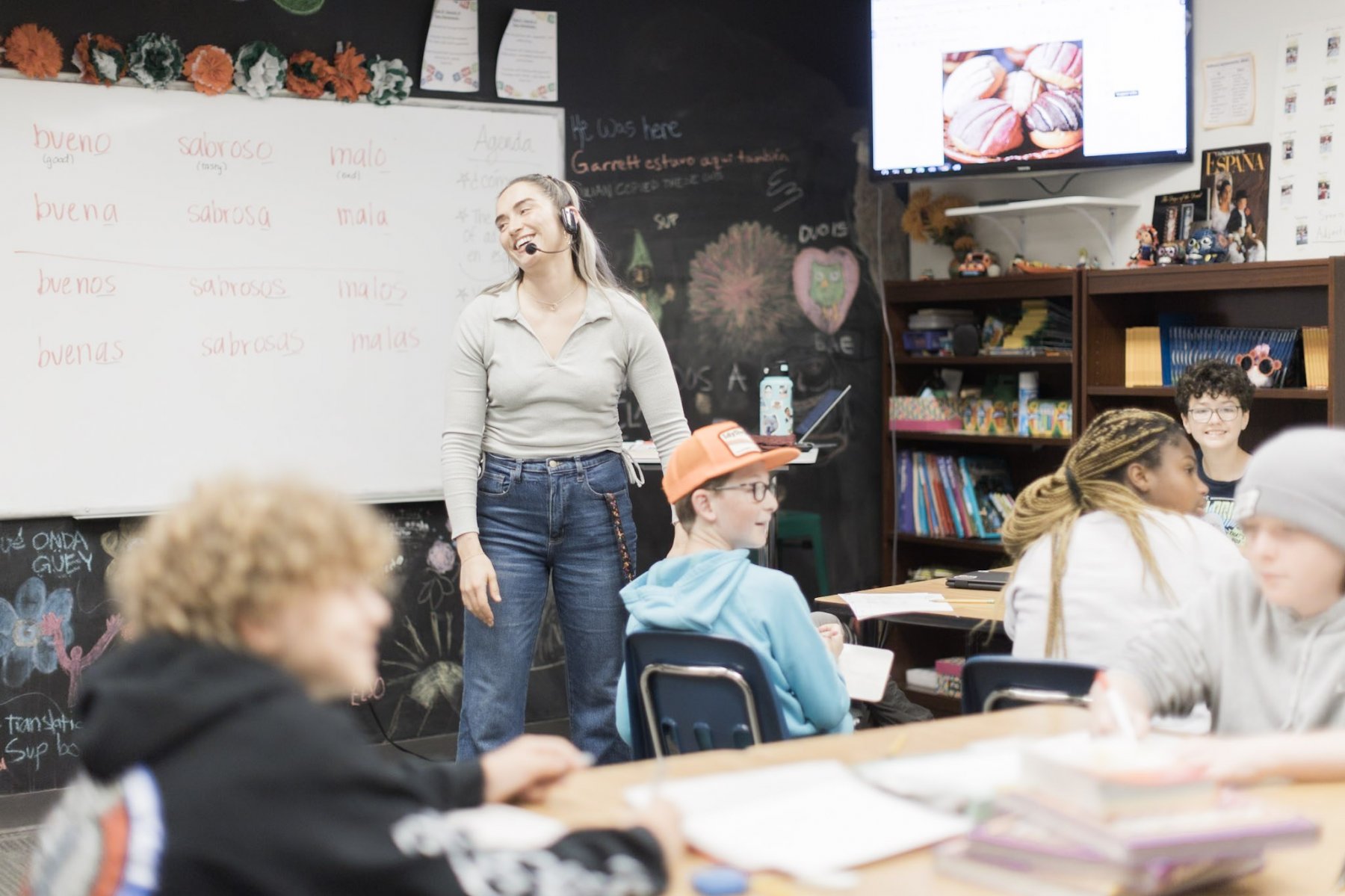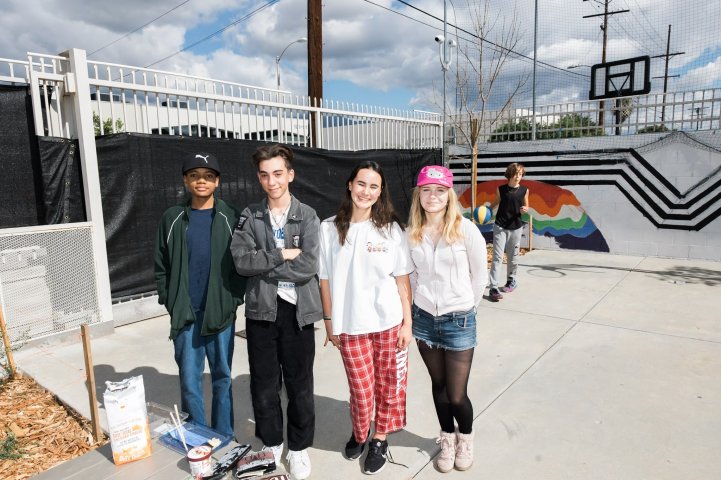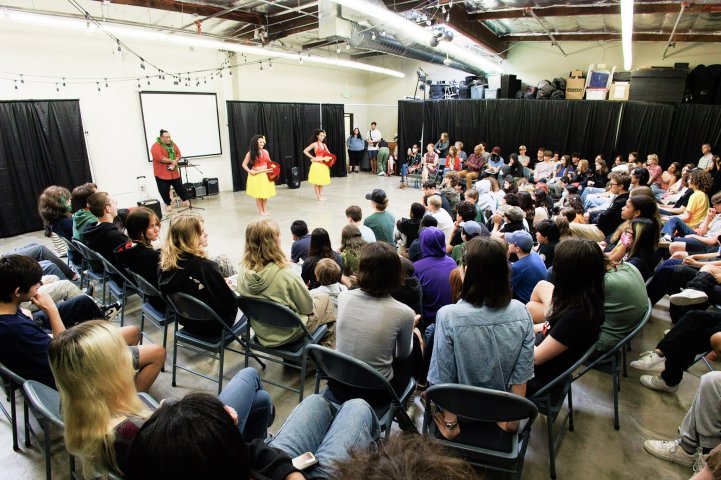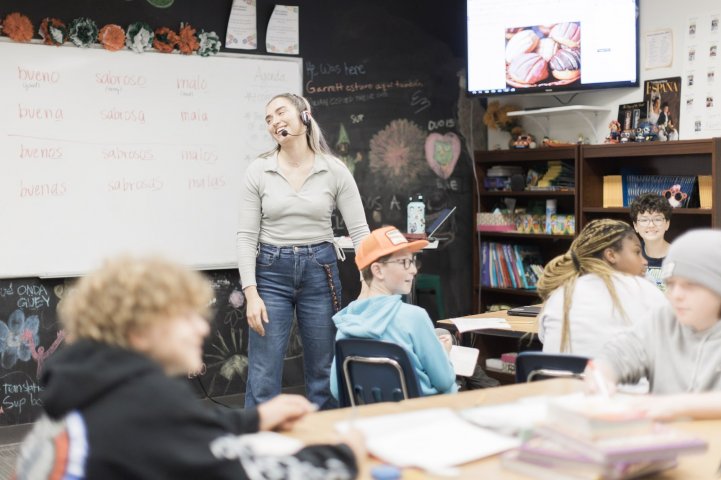Student Life
Advisory
Middle school students begin the school day by meeting in their advisory groups. In advisory, students build relationships with their peers and teachers outside of the academic curriculum. Students learn to support, and to be supported socially, emotionally, and academically. In addition, students meet weekly for a longer block to participate in activities that develop essential middle school skills. Topics include health and wellness, maintaining healthy relationships, cyber-citizenship, conflict resolution, study skills and time management, current events, and community awareness and service learning.
Student Advisory Leadership Team and Clubs
Each fall, students are selected by peers in their advisory groups to represent their advisory and share back information to the advisory. The Student Advisory Leadership Team offers ideas for enriching the school experience, plans events, and selects community service projects.
Middle school students have also created various committees and clubs to address more specific school activities, including a social group for planning dances, and many kinds of clubs for gathering like-minded students (past clubs have focused on politics, popular novels, and the study of ninjas). Teachers support students in these efforts, but they do not tell students what to do, setting the stage for true student leadership.
Physical Education
Our physical education program aims to equip students with the skills and enthusiasm to maintain a healthy lifestyle into adulthood. Activities are designed to promote physical fitness, to develop motor skills, to instill knowledge and understanding of rules, concepts, and strategies, and to teach students to work as part of a team or as individuals. Students use the playground at the elementary school campus, the open space at the Waverly organic farm, and grassy areas at nearby parks for active games.
Athletics
One of the primary academic goals at Waverly is that each student works to his or her highest potential. This is also true in sports, which enrich student life and the school community. We believe that participation in sports can contribute significantly to the physical, social, and emotional well-being of our students. Athletes are encouraged to develop their skills and ability to work as a team. As a result, our coaches focus on maximizing the participation of all team members. Success is measured in terms of personal development and the team’s overall progress.
The athletics program allows students to compete at the middle school level in fall, winter, and spring sports in the Foothill League. Sports include flag football, volleyball, basketball, soccer, and tennis. Read more about athletics.
Outdoor Education & Field Trips
Middle school outdoor education takes form in annual two-night trips to one of two experiences: Astrocamp in Idyllwild and California Island Marine Institute at Toyon Bay. Students learn key science topics, teamwork, and collaboration skills, while enjoying the beautiful natural environment. Usually taking place in the fall, these trips bring students and faculty together away from the pressures of school.
Day-long field trips include visiting the California Science Center, watching dramatic performances at A Noise Within, and seeing local cultural exhibits or performances that fit in with the curriculum.
Human Development
Our Human Development program is based on the Body Trust modality (body image, body diversity awareness, what it means to occupy and care for your body), the Our Whole Lives curriculum (knowledge, life principles, and skills necessary to express sexuality in life-affirming ways), and greatly influenced by social and racial justice, intersectional feminism, shame resilience theory, self-compassion, relational cultural theory, and mindfulness-based approaches. Our spaces are intentionally gender spectrum affirming. Names, pronouns, and expressions of identity can be fluid at all ages and stages and as such, we pay attention and check in often.
The three most important tenets of our trauma-informed Human Development program are Body, Identity, and Relationships, which separately and together affect everything we are and do as ever-developing humans. Sexual and gender identity, sexual health and reproduction, intimacy and consent, sensuality, and sexualization are woven throughout our discussions, as is the idea of values: our own and those of family, friends, and culture.
